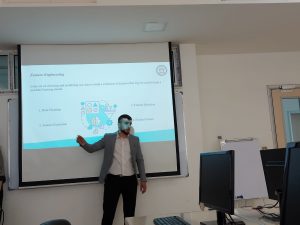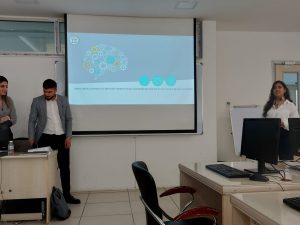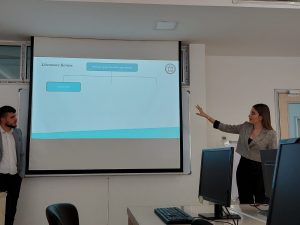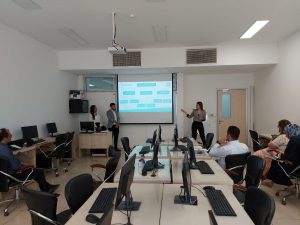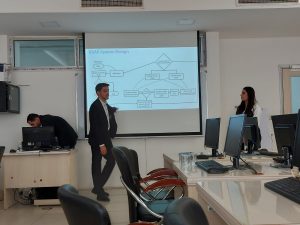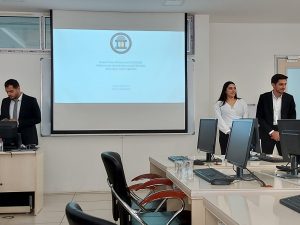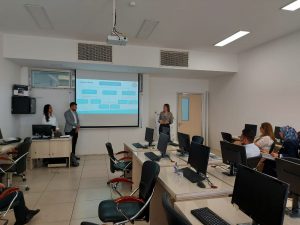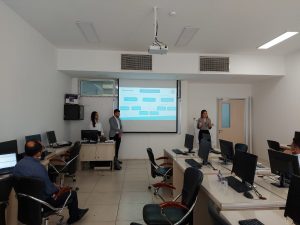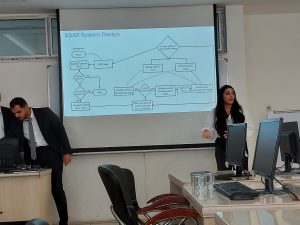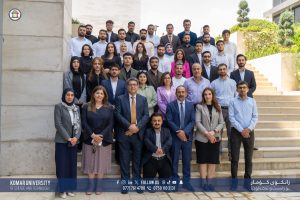
Graduation Project Defense Session of Computer Science Students
Computer Science Department conducted the defense session on 15th, June, 2023 for 2 groups of Bachelor students of this department. Two internal examiners (Dr. Susan and Dr. Rawia) with one external examiner (Dr. Dyari) along with Dr. Osman evaluated the projects and gave their valuable comments. The group members and the topics are as follows:
Group 1 (9:30-10:30): Hybrid Attendance Management System: Utilizing Computer Vision And Deep Learning
Members:
- Bawan Hiwa Mohammed
- Mohammed Hamid Mahmood
- Shan Bnar Jamal
Project Abstract:
A hybrid attendance management system has gained widespread popularity since its inception. It combines traditional and modern techniques to automate attendance tracking to improve accuracy and efficiency. Traditional methods such as the QR-code-based
approach and the Haar-cascade technique have been used widely for their cost-effectiveness. However, modern techniques such as RFID with IoT and Convolutional Neural Networks (CNN) show powerful tools, offering location-based tracking capabilities and improved accuracy. This research goes through challenges aiming to face recognition systems, including pose invariance, illumination, and partial occlusion, which results in an accuracy of the attendance management system under different circumstances such as lightning, external objects, and inactivity of students.
Group 2 (11:00-12:00): Using deep learning to identify opinion spam and mitigate the effect in online review systems
Members:
- Przha Shamal
- Lazo Sherko
- Sewa Diyar
Project Abstract:
During the last decade, online review systems have become vital for people looking for trustworthy information. Online reviews have a deep impact on the sale rates of products but they also cause a strong motivation for spamming activities. The prevalence of opinion spam reduces the legality and utility of such platforms. Therefore, a variety of opinion spam detection techniques including supervised, unsupervised, and semi-supervised have been developed to filter opinionated documents for having trustable analysis. However, most of them consider a limited set of features. This study proposes a novel semi-supervised Deep Neural Network model to accurately identify opinion spam in online reviews by considering content-based and meta-data features. The model has been evaluated with state-of-the-art techniques and produces an accuracy of 95% on the crowdsourced Amazon dataset. The experimental results prove that the DNN model can enhance the accuracy of spam detection by learning complex patterns from large datasets.
